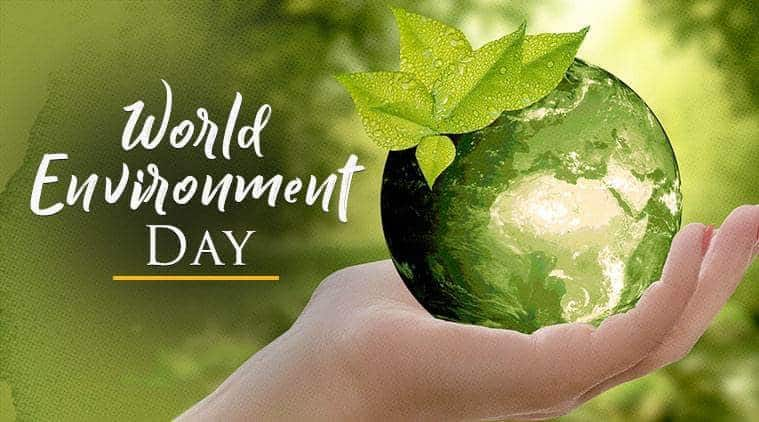
Yunusa Isa, B. Eng, M.Sc., Smiee
June 5 each year marks World Environment Day. This year’s edition coincides with the official launch of the United Nations Decade on Ecosystem Restoration. The programme is a 10-year global collaborative effort to halt and reverse destruction of environment by 2030.
This year’s event will be hosted by Pakistan where the country’s Prime Minister, Imran Khan, in the build up to it, personally planted the billionth tree as part of the country’s 10 Billion Tree Tsunami project.
The environment provides us (humans) and other living creatures with shelter, food, breathable air, water, medicine and all the resources we need for our living. Caring for and ensuring its wellbeing has become increasingly imperative, considering the impact of humanity’s plundering of the environment which is currently a focus of climate change.
An Oscar winning documentary: “An Inconvenient Truth” by former vice president, Al Gore, 15 years ago, sought to draw attention of the world’s political leadership and general public to the urgent need for action to save the environment from looming climate crisis. From Green House Gas (GHG) emissions, deforestation, over fishing, unsustainable land use and plastic/pesticide pollution of our soil, rivers and oceans, continued inaction to halt and reverse this trend would be catastrophic for the environment and entire planet’s ecosystem and biodiversity.
Air
The UN’s IPCC 5th report attributed up to 95% of global warming to fossil-fuel emissions and human activities which circumstantially exacerbates air pollution across the globe. World’s top greenhouse gas emitters, China and India grapple with an annual air pollution over Beijing, Delhi and other cities which, for nearly a decade, spur a flurry of drastic actions ranging from fossil-fuel vehicle rationing, investments in electric vehicles, renewable energy transition, massive tree planting, enhanced cycle paths in the city areas and expanded/new urban green spaces towards meeting PM 2.5 air quality target and better. Air quality is crucial to the healthy wellbeing of any society.
To this end, the city of Birmingham, UK, is set to implement the Clean Air Zone (CAZ) which restricts certain high emission fossil-fuel vehicles from the city centre, effective June 01, 2021, with penalties for defaulters. The programme aims to curb fossil-fuel associated pollutions for the wellbeing of the people living and doing business in the city and the general environment. In Mpumalanga’s Highveld area, home to more than 14 coal powered plants belonging to South Africa’s power giants is a subject of community complaints from Nitrogen dioxide (NO 2 ) pollution of the air from these plants. Poor communities living in Highveld areas are bearing the brunt of polluted air exacerbating the fragile inequality and potential health risks according to Greenpeace.
The COVID-19 pandemic has shone a light on air quality improvement in the absence of human unsustainable environmental practices and clear indication that “if nature is left alone, it will take care of itself.” For example, Delhi’s clear skies and wildlife sightings in many suburban areas during the lockdown.
Land
According to Greenpeace, only 15% of the world’s forests remain intact from human encroachment. The UNEP (United Nations Environmental Programme estimates that at least, 3.2 billion people (40% of the world’s population) are impacted by the growing land and soil degradation threatening food security. A degraded land and soil impacts crop growth, quantity and quality of harvest, thereby impacting food supply for the growing world population with unintended consequences of famine, recipe for conflict and mass migration. Food waste, especially in rich nations is of great concern if we are to meet global food sustainability goals reducing pressure on agricultural land use and hunger among the poor. In this regard, many nations can learn from South Korea where in less than three decades, the country has turned the tide from being a nation of food wasters to food recyclers with over 95% recycle success rate.
Frequent, widespread and longer lasting wild fires from changing weather conditions in California, Amazon, New South Wales (NSW) and Siberia is resulting in wild habitat destruction and forest cover loss. A recent study in Australia estimated over 1 billion wild creatures incinerated, injured/severely burnt or completely displaced in NSW from recent fires in the region.
In yet more encouraging news for the environment, the city of Glasgow host to COP26 has pledged to plant 18 million trees over the next decade. In related promises, UK Prime Minister, Boris Johnson, said: “I am aiming to plant 30,000 hectares (300 square km) of new forest a year across the UK by the end of this parliament.”
Pakistan Prime Minister, Imran Khan, said: “His government wanted its legacy to be a country with huge forest cover, wildlife, clean water and no pollution.”
Sea
71% of earth’s surface is covered by water, while 29% is land according to United States Geological Survey (USGS). Our ocean is a major source of food for countless living creatures, including us humans. But only 3% of it remains free from human pressure. The ocean also absorbs a third of all CO 2 released by humans which is more than all earth’s rainforests combined. Alarmingly, “much of the planet is swimming in discarded plastics, which is harming animal and possibly human health,”according to Laura Parker writing for the National Geographic. Asia and African countries are more overwhelmed in dealing with plastics due to very low recycling rates. Developed nations, too, have issues hinged on food waste. Most plastics are made from fossil fuel by-products and to gauge the severity of global pollution from plastics, the items have been found on Mount Everest (highest point on land) and Mariana Trench (deepest spot in the sea) respectively. It’s estimated that every three years, about eight million tonnes of plastic waste escapes into the oceans from coastal nations and are transported from inland rivers, lakes and streams into the oceans. As plastics broke down in the ocean from large chunks to micro-plastics and fibres, they are mostly mistaken as food by ocean creatures and ingested. Some of the micro-plastics have been found in fish, mussels, shrimps and other marine organisms with unintended consequences of ending up in our dinner table and drinking water.
Besides harm to marine life through plastic entanglement, ingestion, starvation and marine habitat pollution, plastics in the oceans are a big threat to marine ecosystem and impact on food chain.
To tackle plastics pollution, single-use plastics are mostly banned in many countries. Non-plastic multiple use containers are currently receiving greater attention.
“Mr.Trash Wheel” in Baltimore, US and corporate/local community partnership such as the Watamu Marine Association’s litter collection at Watamu beach, Kenya, have been effective in halting and preventing plastics and other wastes from reaching marine habitats.
We all have a role to play such as planting trees, restoring degraded forests, protect wildlife, preserve the oceans, transition to environmentally friendly energy sources, use mass transit system, sort waste for recycling, create urban garden, adopt plant-rich diet, refrain use of pesticide, demand green post COVID-19 recovery investments and raise environmental awareness in your household, community and the larger society.
World governments, through renewed commitment, in collaboration with global organizations, corporations, non-governmental groups, indigenous communities and Citizens, owe a duty to the environment to protect, conserve and restore it now more than ever for our wellbeing and that of future generations.
You may be interested

Chukwueze Gets New Coach At AC Milan
Webby - December 30, 2024Samuel Chukwueze will play under a new coach at AC Milan following the appointment of Sérgio Conceição.Milan confirmed Conceição’s appointment…

NPFL: Enyimba Unveil Brown Ideye
Webby - December 30, 2024Enyimba have announced the signing of former Super Eagles striker Brown Ideye, reports Completesports.com.Ideye previously trained with Rivers United but…

Milan Coach Fonseca Faces Sack After Draw Vs Roma
Webby - December 29, 2024Paulo Fonseca seems to have reached an end in his short-lived tenure as Milan’s head coach as he faces sack…














![American Pastor, David Wilson Seen Eating The Box Of Woman Who Isn’t His Wife [Video]](https://onlinenigeria.com/wp-content/uploads/2019/10/american-pastor-david-wilson-seen-eating-the-box-of-woman-who-isnt-his-wife-video-150x150.jpg)









